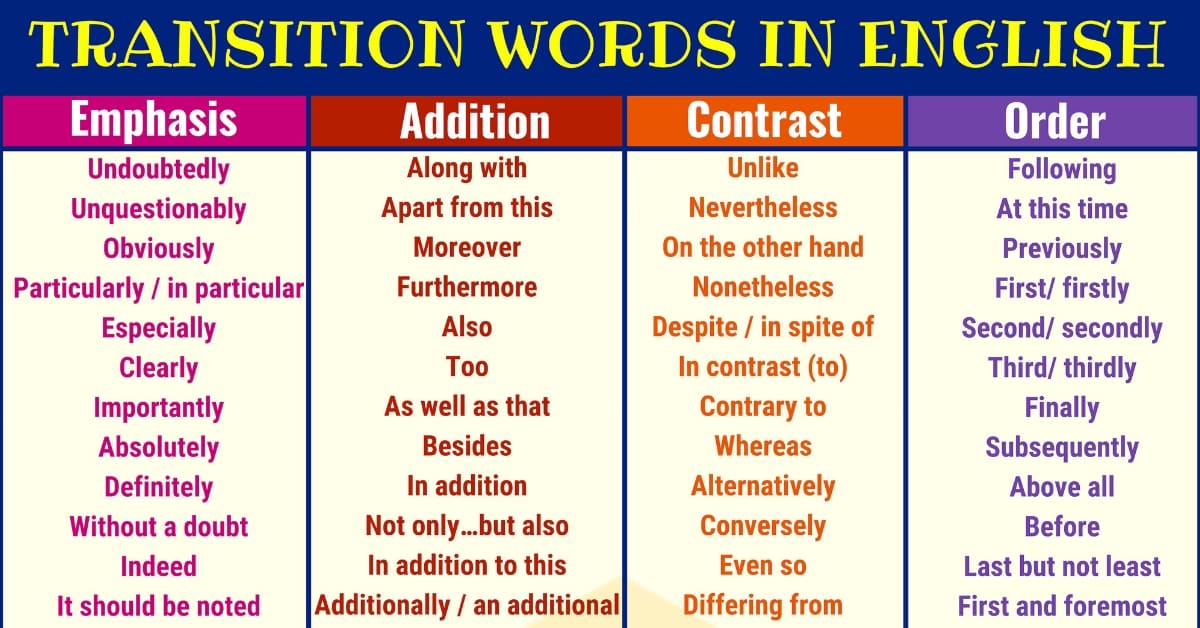Literary Terms
Figurative Language
Inferences
Vocabulary
Writing Terms
100
the person, animal, or creature that is in a story, poem, or play
What is character?
100
a comparison that uses LIKE or AS
What is simile
100
when you draw a conclusion based on what you already know and what is directly stated
What is inference?
100
to find the similarities and differences between two elements
What is compare and contrast?
100
the first paragraph of an informational or opinion essay
What is introduction?
200
the when and where of the story
What is setting?
200
a comparison that DOES NOT use LIKE or AS
What is metaphor?
200
the information already given
What is explicit?
200
an assertion, argument, or opinion based on evidence
What is claim?
200
the perspective from which the story is told
What is point of view?
300
the problem or issue in the story
What is conflict?
300
giving human characteristics to animals or objects
What is personification?
300
David knew that Nancy liked to read mystery stories. He had just finished reading one. he had liked it a lot, so he brought the book to school to give to Nancy. Nancy took the book. She said, "Wasn't the ending great!" Then she gave the book right back to David. -WHY DID NANCY GIVE THE BOOK BACK TO DAVID?
What is she had read it before?
300
details from the text to support your response
What is evidence?
300
the final paragraph of an informational or opinion essay
What is conclusion?
400
the lesson or moral of the story
What is theme?
400
sound words like ZOOM, CRASH, or SPLASH
What is onomotopoeia?
400
Make an inference:
I begin in the morning . . . Tomorrow is always another . . . . . . at sunrise There are 365 of me in each year . . . and last until sunset Night is my opposite "yester" is always the one before I hope you have a nice . . . "to" is the one right now
What is DAY?
400
the most important message the author wants to communicate
What is main/central idea?
400
when the conflict is solved or the problem is fixed in a narrative essay
What is resolution?
500
when the author gives a hint about what is to come later in the story
What is foreshadowing?
500
extreme exaggeration to make a point
for example: When is lunch? I am STARVING!
What is hyperbole?
500
While Billy was on vacation, he took a trip on a boat. The boat took him to the whales' feeding ground. There were many passengers on the boat. Everyone was excited at the thought of seeing a whale. Suddenly, a whale surfaced. Everyone went quiet. It was an awesome sight. Billy's eyes popped out of his head and his mouth dropped open. He stared at the whale, unable to utter a sound. BILLY felt...
What is amazed?
500
using the information in a sentence or text to figure out meanings of unknown words
What are context clues?
500
name as many transition words as you can
